Aronia melanocarpa – a Magic gift from the Native Americans
by Alex Butova, the Witch of Herbs and Cats
Alexandra Butova is our columnist, journalist, and photographer, living in Riga, Latvia. She has has been with TopTropicals since Day One (2002), writing about magic plants, travel, and of course cats - from the CatNation she belongs to. Alex is in charge of TopTropicals.ru website.
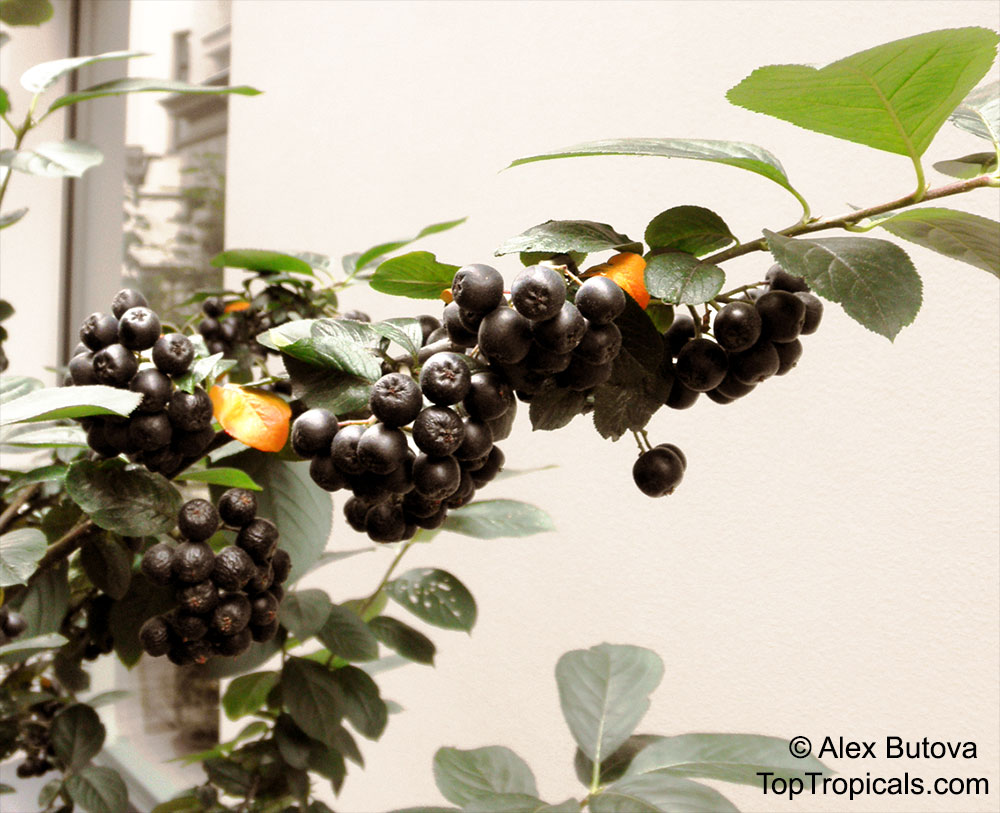
Aronia melanocarpa – a Magic gift from the Native Americans
...A very cold hardy fruiting plant (USDA hardiness zone 3-9), Chokeberry has been cultivated for ages as both ornamental and food plant. Enjoy them in an array of foods as they are rich in vitamins. Masses of fragrant, white flowers bloom in spring; gorgeous red fall colors and extra large berries follow the glossy summer foliage. Persistent, purplish black berries are high in nutrients and can be used for pies and jellies. This is one of the true super fruits, high in antioxidants with huge health benefits. This fruit is widely used in Eastern Europe in holistic medicine for lowering blood pressure. Fruit should be consumed with caution as excessive amount can cause significant and immediate blood pressure drop...
Aronia melanocarpa, or theBlack Chokeberry, is a species ofshrubsin therose familyRosaceae native toeasternNorth America, ranging fromCanadato the centralUnited States, fromNewfoundlandwesttoOntarioandMinnesota,southas far asArkansas,Alabama, andGeorgia. This plant was developed in Europe as an orchard plant.
It is a branching shrub with glossy dark greenleaveswith finely toothed margins that take on brilliant red color in theautumn; it grows well in thesunand part-shade, often to heights of 6ft or more, forming clumps by means of stems rising from theroots.
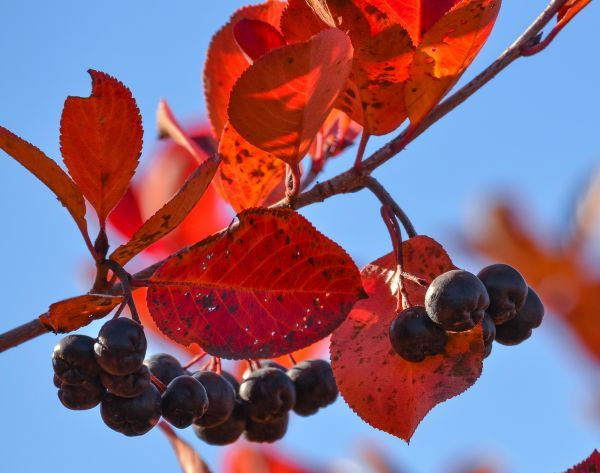
Masses of fragrant white or pink flowers cover these shrubs in Spring providing nectar for birds and pollinating insects. In September it produces dark purple-black edible berries (blueberry size) that ripen in late summer.
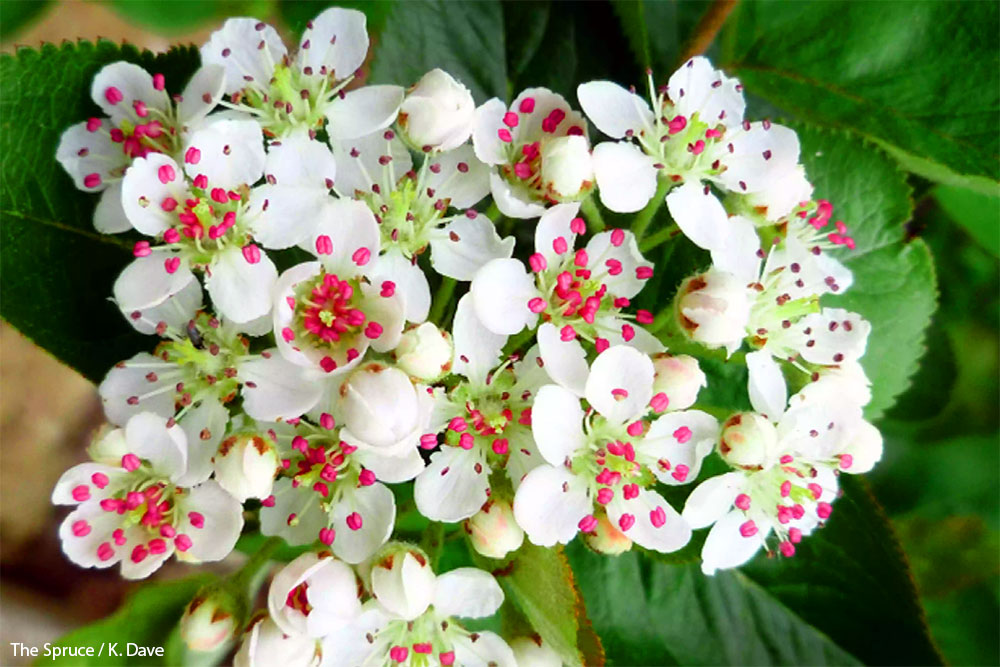
It is called a Chokeberry because supposedly the tartness of the berries can make you chok! Although the fruit are may be too tart to eat fresh, it is a sought after component of health drink juices.
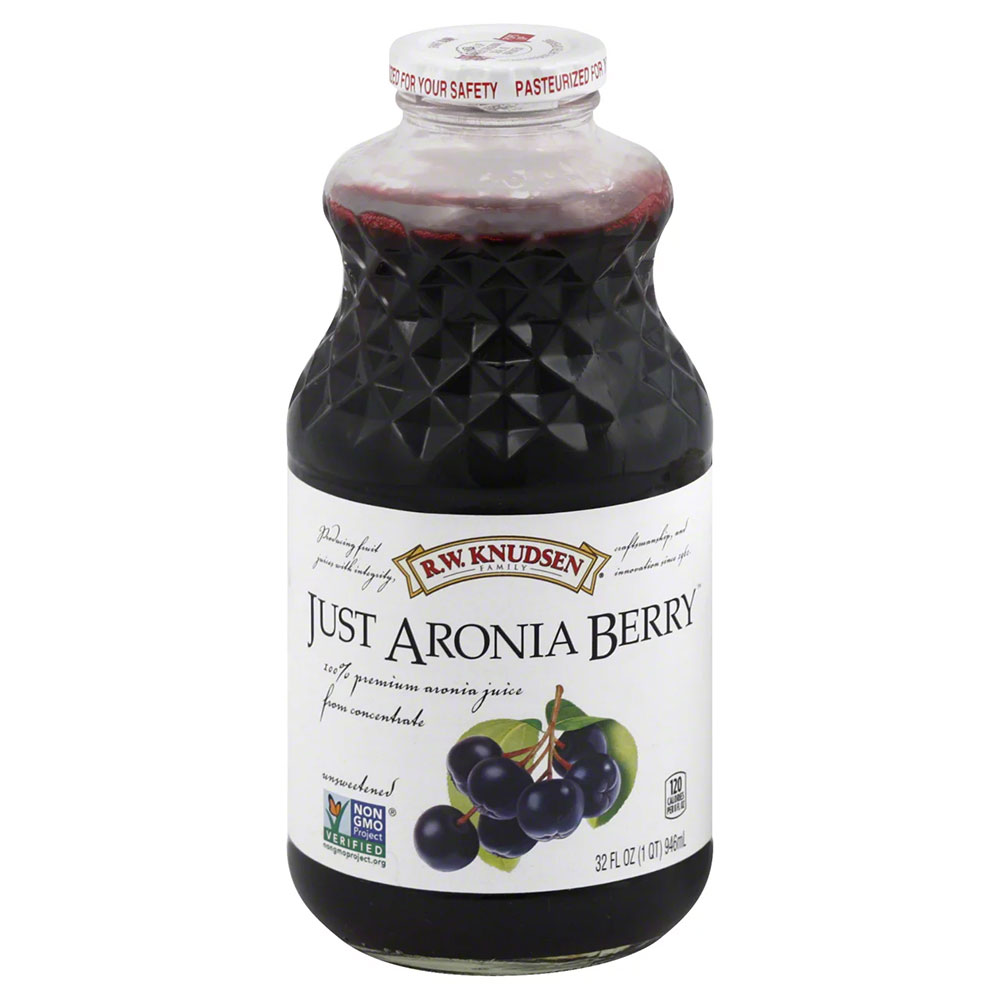
Chokeberries are cultivated asornamental plantsand asfood products. The aronia berries, can be eaten raw off the bush, but are more frequently processed. They can be used to make wine, jam, syrup, juice, soft spreads, tea, salsa, extracts, beer, ice cream,gummies, andtinctures. They provide food for birds and other wildlife.
Aronia melanocarpa was widely used by Native Americans to preserve meat due to the high levels of antibacterial and antifungal properties of the juice made from the fruit. Traditionally, these small, dark berries were used as acold remedyby Native Americans.
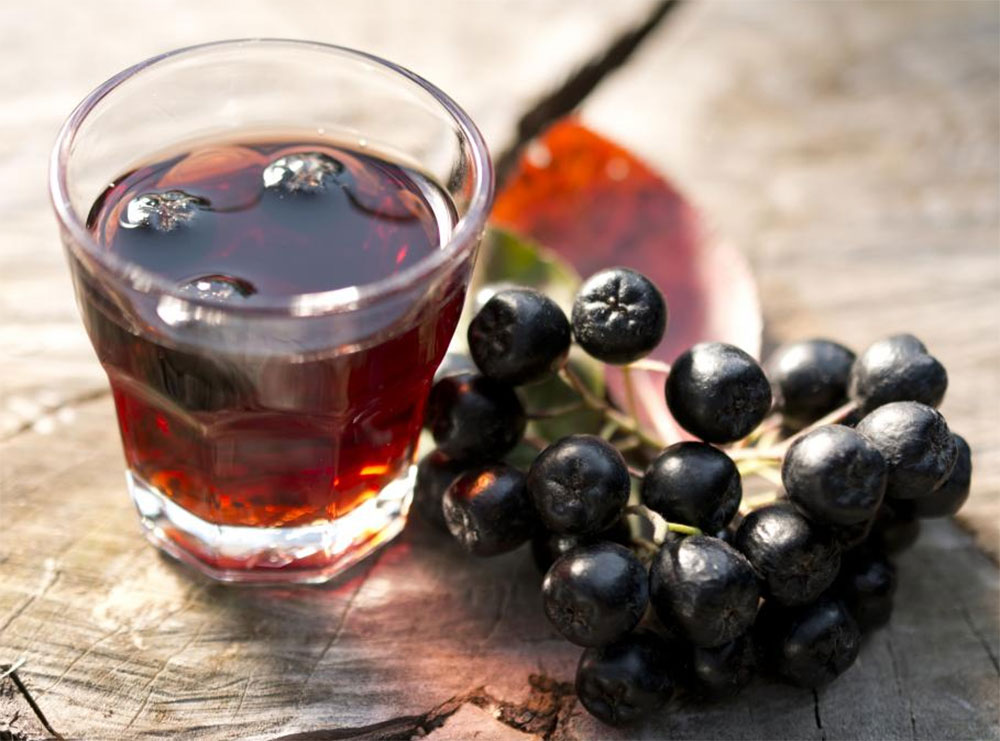
The aronia berries really are among the richest berries in antioxidants and have been marketed as asuperfood. Nowadays they have become popular among health-conscious consumers These magic berries are considered one of the richest sources of plant antioxidants, which are said to offer many health-promoting properties.
Just 1 ounce (28 grams) of aronia berries provides the following nutrients: Calories:13, Protein: 2 grams, Fat:0 gram, Carbs:12 grams, Fiber:2 grams. Vitamin C:10% of the Daily Value (DV), Manganese:9% of the DV, Vitamin K:5% of the DV. The berries also supply Folate, Iron, and Vitamins A and E. Plus, they’re an excellent source of beneficial antioxidants.
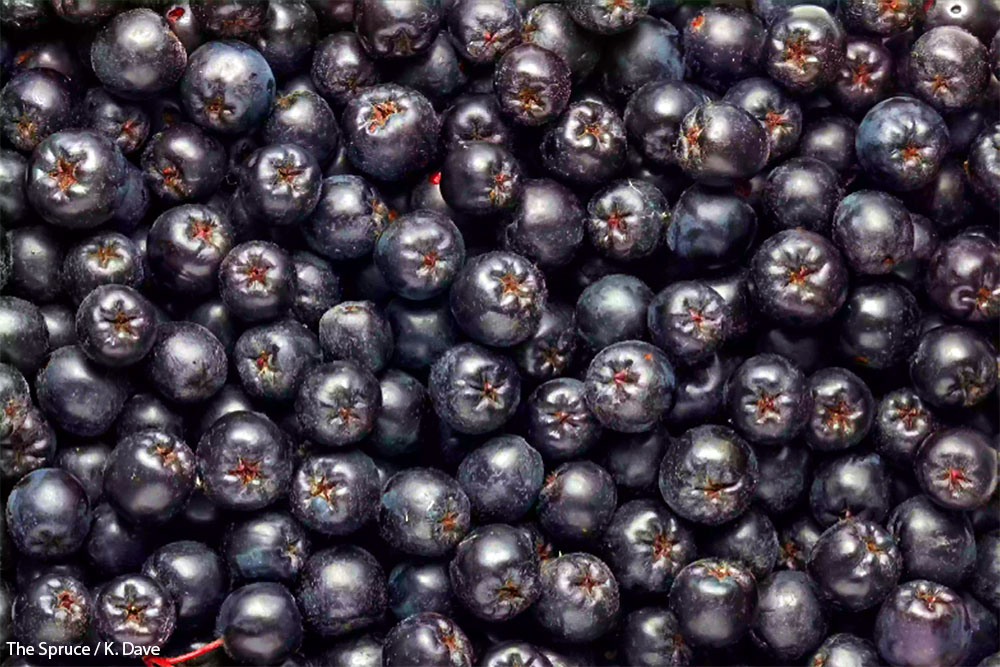
These compounds help protect your cells from potentially harmful molecules called free radicals. A buildup of free radicals can cause oxidative stress, which can lead to chronic conditions, such as heart disease and cancer.
Aronia berries packhigh levels of powerful antioxidants that includes phenolic acids, anthocyanins, and flavanols.
Aronia berries are an excellent source ofpolyphenols, which is a group of antioxidants. The extracts from aronia berries significantly reduces stress.
Moreover, medical studies have linked the antioxidants in these fruits to other impressive health benefits, such as decreased inflammation, as well as reduced bacterial and cancer cell growth.
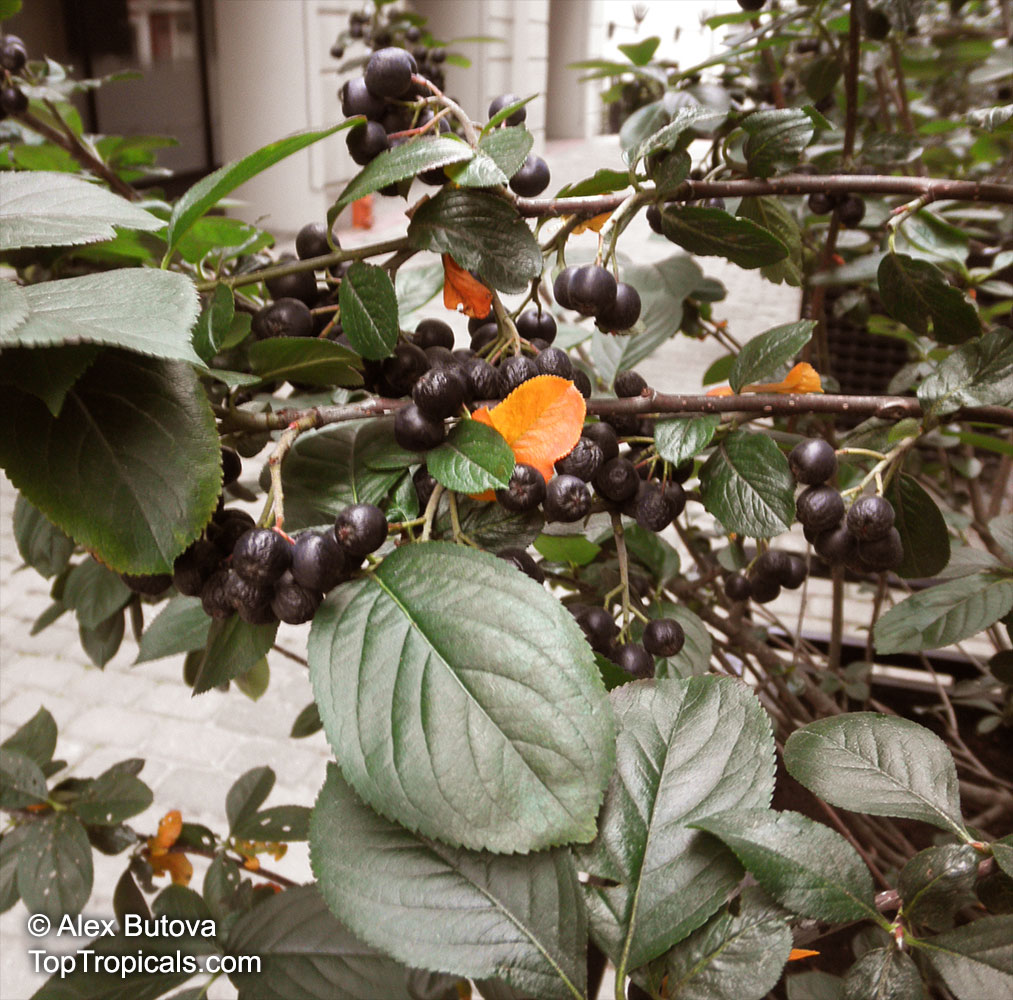
Due to its antioxidant properties, aronia berries may improveheart health.
In particular, they may help people with metabolic syndrome, a cluster of conditions - including high cholesterol and triglyceride levels - that increases your likelihood of heart disease and diabetes, significantly decreases triglycerides, LDL (bad) cholesterol, and total cholesterol, and significantly reduced the same health markers, as well as blood pressure.
Aronia berries may strengthen and support the immune system: its extracts exhibited strong antibacterial activity against harmful bacterias.
In addition, medical study found that those who drank aronia berry juice daily experienced up to 55% reductions inurinary tract infections.
Aronia berries may alsoreduce inflammation and boost immune health.
Finally, the berries have antiviral effects!
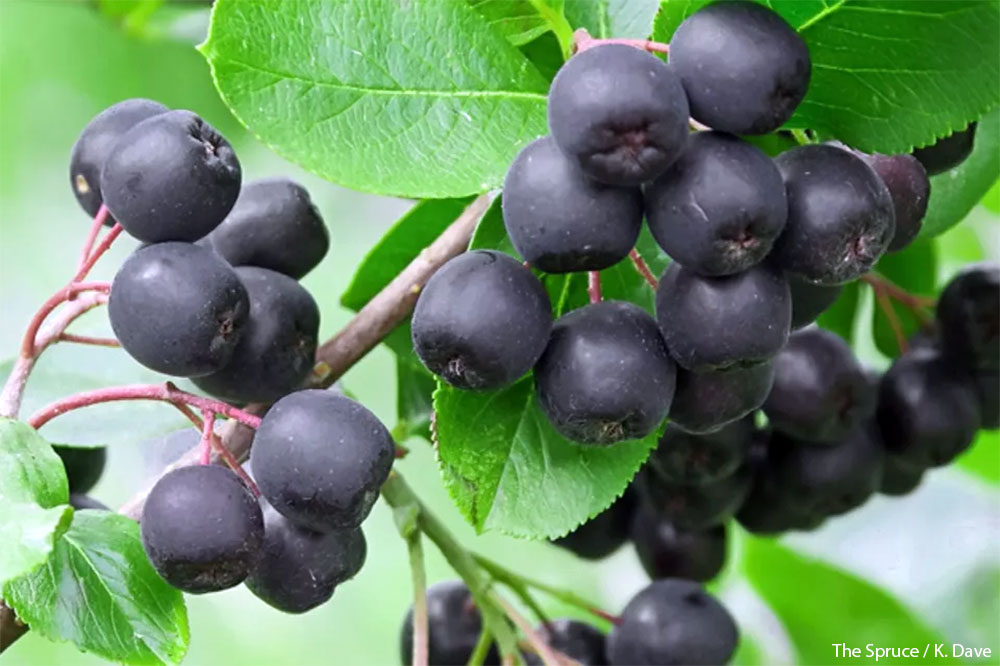
Aronia berries are safe to eat with no serious side effects. The only downside is their astringent, mouth-drying effect.
Though you may not find aronia berries in your local grocery store, they may be available in health food stores. But the best way to keep your own superfood supply, of course, is grow your own bush! If you have a small garden, plant two or three bushes of aronia, and take advantage of this wonderful fruit health benefit along with decreasing yoyur medical bills!
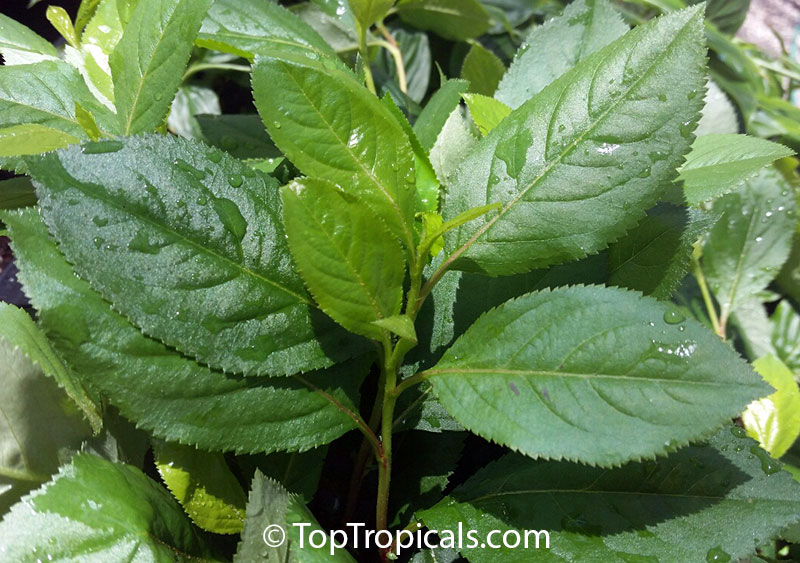
Moreover Aronia is attractiveornamental plantfor gardens in wide range of climates. Easily to grow, low water needs, full sun to part shade. It has a wide range of soil tolerance including boggy soils. It is naturally understory and woodland edge plant, and grows well when planted undera tree canopy. This plant is resistant to drought, insects, pollution, and diseases.
And finally, it is not only useful, but simply beautiful!
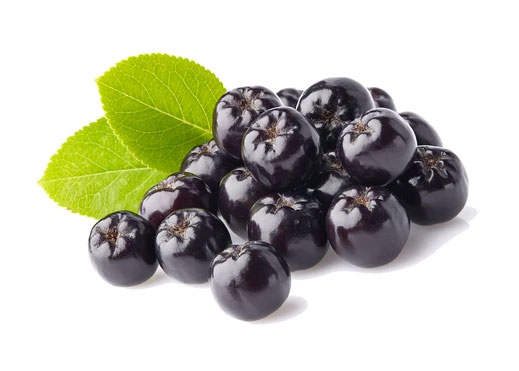
See more articles by Alex Butova

